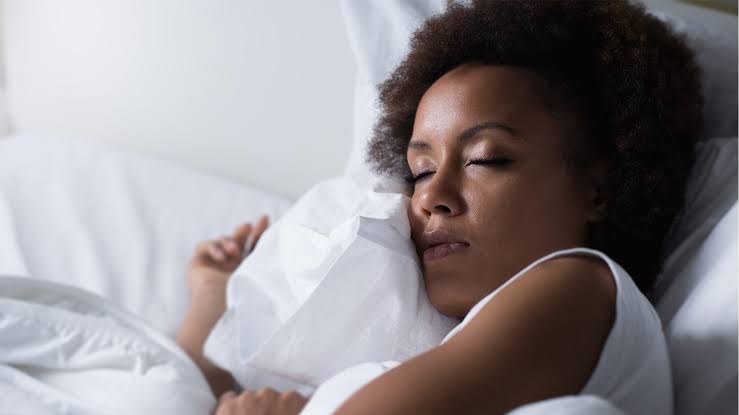
Wrong beliefs about sleep can have a damaging effect on your health.
One way you can improve your health is to identify some of these commonly held false beliefs that do not have any scientific backing.
Introduction
The quality and how long you sleep is important to your health as a whole
Even though, researchers have shown that genetic, physiologic, and environmental factors also play a critical role in sleep-wake regulation.
It is very important for you to know that some widely-held false beliefs that may actually worsen your sleep health.
Beliefs can take many different forms. According to the Health Belief Model, health behaviors can be predicted by beliefs associated with risk susceptibility, risk severity, benefits to action, barriers to action, self-efficacy, and cues to action.
Sleep deficiency (defined as inadequate sleep duration and/or poor sleep quality) is a public health issue. Approximately one third of adults in the U.S. report sleeping less than the recommended 7 hours nightly.
Further, approximately 30% of adults in the U.S. endorse insomnia symptoms and 10% have received a clinical diagnosis. Insufficient sleep duration and sleep difficulties carry economic burden, estimated to be over $40 billion annually.
In sleep medicine, little attention has been paid to sleep myths that may persist in the population despite availability of scientific evidence to the contrary.
The goal of this article is to identify myths about sleep.
Myths were categorized in the following domains:
1) Sleep duration;
(2) Sleep timing;
(3) Behaviors during sleep;
(4) Daytime behaviors that relate to sleep;
(5) Pre-sleep behaviors; and
(6) Brain function and sleep.
(1) Sleep Duration
- Myth: If you can fall asleep “anytime, or anywhere” you have a healthy sleep system
FACT: You have sleep deficiency or you are sleep deprived if you experience excessive daytime sleepiness, or can fall asleep ‘anytime, anywhere’. It is a sign of underlying sleep problem.
- Myth: Many adults need only 5 or fewer hours of sleep for general health
FACT: A habit of insufficient sleep (5 or fewer hours) can harm your heart, immunity, mental and metabolic health.
Although initial evidence suggests there may be a minority of folks who can function well with less than the recommended 7 hours (e.g., 5 hours) without negative effect. Evidence of elevated chronic disease risk with short sleep duration supports a recommendation of 7 hours for most adults
- Myth: Your brain and body can adapt and function with less sleep
FACT: Several studies show that reducing sleep leads to sustained decrease in ability to perform optimally.
Further, night shift-workers, who habitually sleep fewer hours than day-workers, face higher morbidity due to breast cancer and all-cause mortality than day-workers.
Even though, individuals might “adjust” to consistent sleep debt and/or circadian misalignment, but do so at the risk of serious health consequences.
Consequently, evidence disproves the statement that the brain and body can adapt to function on less sleep.
- Myth: Adults sleep more as they get older
FACT: How long you sleep period varies across your lifetime.
A meta-analysis establishes that older adults sleep less than younger adults which may be due to the presence of certain health conditions like arthritis, diabetes, hypertension.
Further, it is not apparent if older adults in general need less sleep than do younger adults, only that they get less.
- Myth: If you can get it, more sleep is always better
FACT: Funny enough, studies show that those who sleep longer than 8 hours per day have a higher death rate even in people with good health status.
The only exception is if you are recovering from sleep loss or an illness. But children need to sleep longer as for optimal behavioral development.
However, for individuals with insomnia, trying to compensate for lack of sleep by staying in bed longer can lead to a vicious cycle of further sleep fragmentation and more time lying awake struggling to stay asleep. Conversely, reducing the amount of time you spend in bed is restriction of is one of the most effective behavioral treatments for insomnia.
- Myth: One night of sleep deprivation will have lasting negative health consequences
FACT: One night of sleep deprivation has some short-term adverse effects, though they likely resolve with recovery sleep. Meta-analysis has found sleep deprivation (e.g., lack of sleep for at least 24 hours) leads to worse performance in several cognitive domains (e.g., lapses in simple attention).
Also, sleep deprivation can cause an increase in resting blood pressure.
However, in an experimental research mental performance of individuals declined after two nights of sleep deprivation, yet performance returned back to normal with sufficient sleep recovery.
This shows that sleep deprivation has negative effect on the body.
(2) Sleep Timing
- Myth: In terms of your health, it does not matter what time of day you sleep
FACT: Research on night shift-workers (individuals who work at night and sleep during the day), provides evidence regarding the implications of sleep timing for health. Night shift workers, who experience circadian desynchronization, report less sleep and lower sleep quality than day-workers, and are also at higher risk for long-term adverse health outcomes including depression, diabetes, and breast cancer.
Although it could be argued that sleep during the day is better than no sleep at all, the evidence from shift-workers suggests that sleep timing is related to health, thereby refuting this myth.
(3) Behaviors During Sleep
- Myth: Lying in bed with your eyes closed is almost as good as sleeping
FACT: Endocrine, cardiovascular, metabolic, and cognition is markedly different during wakefulness than non-rapid eye movement (REM) sleep. Cognition is a prime example, as brain activity during sleep takes on a very different pattern compared with activity in the awake brain.
Sleep and arousal regulatory centers in the brain function as a sort of “on-off” switch, whereby one is either sleeping or awake with little overlap. Also, a sharp nocturnal “dip” in core body temperature is much larger when individuals are asleep compared to when they lie quietly awake in bed, providing further evidence that sleep differs from lying down with eyes closed.
Thus, available evidence showing cognitive activity when a person is sleeping is distinctly different from wake with eyes closed refutes this myth.
- Myth: If you have difficulty falling asleep, it is best to stay in bed and try to fall back to sleep
FACT: Individuals who experience difficulty falling asleep are instructed to follow what is termed ‘stimulus control therapy.’
Although it seems counter-intuitive, in stimulus control therapy individuals experiencing difficulty falling asleep are instructed to leave their bed, avoid blue light, and return to bed only when they are tired.
Individuals who follow these instructions demonstrate significant improvements, such as lower time to fall asleep.
Meta-analysis also shows stimulus control therapy improves one’s ability to fall asleep and overall sleep quality.
Thus, available evidence and high ratings on falseness from experts refutes this myth.
- Myth: Although annoying for bed partners, loud snoring is mostly harmless
FACT: Snoring is caused by turbulent airflow due to partial obstruction of the upper airway during sleep. One large, cross-sectional study of US adults found 52.8% reported snoring, and that snoring was associated with adverse health outcomes in its own right.
Furthermore, snoring is a primary symptom of OSA that, when untreated, places individuals at elevated risk for adverse cardiovascular events.
Thus, loud or bothersome snoring may be an indication that one needs to consult with a healthcare provider.
- Myth: A sound sleeper rarely moves at night
FACT: Occasional movement has been documented as a normal part of sleep.
The number of movements during sleep vary across the lifespan, with the fewest occurring during sleep among those between ages 18 to 30.
However, unless prolonged and chronic, small movements and cortical arousals during sleep may be a part of normal sleep.
(4) Daytime Behaviors that Relate to Sleep
- Myth: Hitting the snooze when you wake up is better than getting up when the alarm first goes off
FACT: While little research has directly examined effects of alarms in interrupting sleep, and the role of “snoozing” in between alarm sounds, sleep disruptions are not optimal. Sleep fragmentations, such as those caused by a snooze bar, are associated with adverse outcomes, including decreased mental flexibility and subjective mood.
Thus, evidence suggests it may be best to set the alarm when one needs to get up instead of setting multiple alarms that might interrupt sleep.
- Myth: If you are having difficulties sleeping at night, taking a nap in the afternoon is a good way to get adequate
FACT: Research shows a ‘siesta,’ or mid-afternoon nap, is common in some cultures.
Napping can also be used to supplement insufficient nocturnal sleep. However, habitual napping can be associated with adverse health outcomes. Napping is discouraged among those with insomnia, as it may reduce homeostatic sleep drive and perpetuate nighttime insomnia and presents health consequences.
The evidence that napping can perpetuate insomnia along with expert scores casts doubt on a recommendation that individuals who experience difficulty sleeping at night should nap.
(5) Pre-Sleep Behaviors
- Myth: Alcohol before bed will improve your sleep
FACT: Folklore makes reference to a ‘nightcap’ or serving of alcohol consumed as part of the bedtime routine.
The literature on sleep and alcohol shows alcohol consumed close to bedtime reduces sleep latency, but subsequently causes sleep disturbances in the second half of the night. Across a number of different studies and doses, overall alcohol has a negative overall impact on sleep, delaying the onset of REM sleep.71 Alcohol consumption has also been found to worsen sleep apnea symptoms.72 Thus, evidence is relatively strong to refute this myth.
- Myths: For sleeping, it is better to have a warmer bedroom than a cooler bedroom
FACT: Cross-sectional evidence showed a warm environment (specifically, a reported “hot and stuffy” bedroom) is associated with poor sleep.
Another cross-sectional study of self-reported environmental barriers to sleep showed “too high a temperature” was a limiting factor for sleep health. Consequently, a temperature between 65 and 70 degrees Fahrenheit is often recommended for sleep.Taken together, there is moderate evidence to refute this myth.
- Myth: Boredom can make you sleepy even if you got adequate sleep before
FACT: It is sometimes said that boring activities, such as a dry lecture or meeting, could induce sleepiness. However, participants who underwent 60 hours of forced bed rest, arguably total boredom, slept longer than 7 hours in a given 24-hour cycle, but did not sleep the entire time.
Other evidence from cross-sectional surveys among older adults shows individuals with hobbies and lower reported boredom have better sleep quality.
Thus, boredom may reveal underlying sleepiness, but boredom alone does not cause sleepiness.
- Myth: Watching television in bed is a good way to relax before sleep
FACT: Routines before bed can include television watching, as one survey of adults in the U.S. found 50% of respondents reported television watching in the 30-minutes period leading up to bedtime.
Time-use data from U.S. adults also revealed late-night television watching to be more common among short sleepers.79 Also, experimental evidence shows pre-sleep arousal mediates the relationship between television viewing and sleep difficulties.
Thus, television viewing may not be an optimal pre-bed activity for relaxation before bed.
- Myth: Exercising within 4 hours of bedtime will disturb your sleep
FACT: Exercise and sleep appear to be mutually beneficial, as one meta-analysis showed small to moderate improvements in sleep-related variables with consistent physical activity.
According to survey data from US adults, nighttime exercise was not associated with sleep disturbance for the majority of individuals.
Other experimental evidence shows no impairment in sleep following vigorous nighttime exercise.
Thus, low ratings of falseness and conflicting evidence preclude a definitive conclusion that this statement is indeed a myth.
(6) Brain Function and Sleep
- Myth: During sleep, the brain is not active
FACT: Although it may appear to an observer that the brain is passive during sleep, research indicates otherwise. The characteristic neuronal activity in the thalamus and brainstem of the awake EEG begins to slow and brain waves become larger in amplitude.
Then, sleep is periodically marked during REM sleep by activity, including eye movement, loss of muscle tone, and rapid firing of neurons.
Finally, sleep plays an important role in clearance of neurotoxic waste from the brain. Thus, strong evidence refutes the myth that the brain is passive during sleep.
- Myth: Remembering your dreams is a sign of a good night’s sleep
FACT: Diaries comparing sleep duration and dream recall show an association between REM episodes, is a marker of a good night’s sleep. However, dream recall in sleep sleep duration and dreaming. This research suggests that longer sleep duration, which would provide opportunity for more and longer research can be conducted with dream diaries, but also by awakening participants from REM sleep when the majority of dreaming takes place. Thus, the challenges associated with dream research (e.g., awakening from REM and dream diaries) and the minimal number of studies examining the relationship between sleep health and dreaming, refute this myth.
Implications
Beliefs are associated with behaviors.
A snoring bed partner could disrupt a partner’s sleep or other individuals in the household. In addition, promoting awareness about problematic snoring among spouses and the need to seek treatment for potential sleep apnea could be a potentially promising direction for future interventions.
The myths about sleep are many untrue beliefs regarding sleep health.
Conclusion
Beliefs may be broadly categorized as those that promote or those that degrade healthful sleep practices. In this study, we focused on potential myths, one category of beliefs that have potential adverse effects on sleep health.
We identified a list of 20 myths categorized into six dimensions of sleep. The results provide a working framework for public health research and practice to address sleep beliefs that are not substantiated by scientific evidence, in the hope of ultimately promoting healthful sleep practices.



